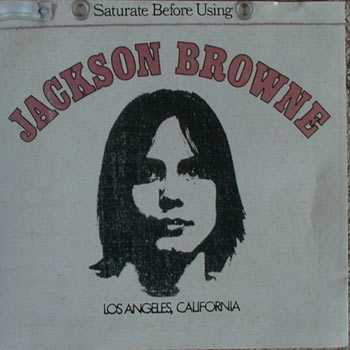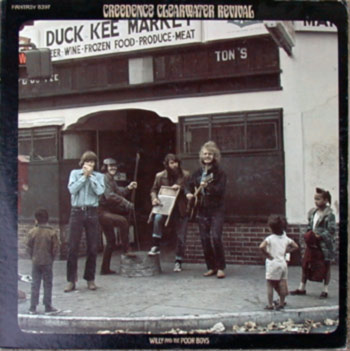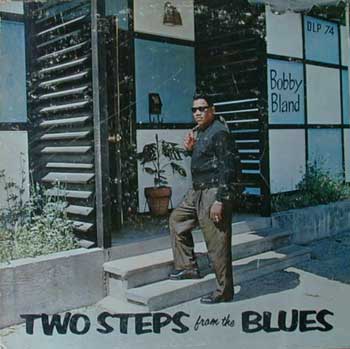Considering that Jackson Browne’s “Doctor My Eyes” has been one of my favorite folk-rock songs for years, it may seem a little strange that Phil Och’s “Outside a Small Circle of Friends” is also one of my favorite songs despite the fact that the messages of the two seem almost diametrically opposed.
While “Doctor My Eyes” points out how painful it is to see all the misery that exists in our world, “Outside a Small Circle of Friends” complains that people are too self-absorbed and ignore all the injustices going on around them. If we’ve already seen too much of the world’s misery, why would we want to be told that people are ignoring the injustices of the world and that we need to be more involved?
Beats, me. Perhaps it’s just because this little ditty is set to a snappy, Scott-Joplin piano arrangement or because the irony is just funny enough to keep us laughing when we might be crying. Or, perhaps because it’s true. Too few people want to get involved with the injustices of the world, one of many reason that such injustices continue to exist.
If more people got involved in solving these injustices there wouldn’t be so much misery in the world, and we wouldn’t have to close our eyes to so much of it.
OUTSIDE A SMALL CIRCLE OF FRIENDS
Look outside the window, there’s a woman being grabbed
They’ve dragged her to the bushes and now she’s being stabbed
Maybe we should call the cops and try to stop the pain
But Monopoly is so much fun, I’d hate to blow the game
And I’m sure it wouldn’t interest anybody
Outside of a small circle of friends.
Riding down the highway, yes, my back is getting stiff
Thirteen cars are piled up, they’re hanging on a cliff.
Now, maybe we should pull them back with our towing chain
But we gotta move and we might get sued and it looks like it’s gonna rain
And I’m sure it wouldn’t interest anybody
Outside of a small circle of friends.
Sweating in the ghetto with the colored and the poor
The rats have joined the babies who are sleeping on the floor
Now wouldn’t it be a riot if they really blew their tops?
But they got too much already and besides we got the cops
And I’m sure it wouldn’t interest anybody
Outside of a small circle of friends.
Oh, there’s a dirty paper using sex to make a sale
The Supreme Court was so upset, they sent him off to jail.
Maybe we should help the fiend and take away his fine.
But we’re busy reading Playboy and the Sunday New York Times
And I’m sure it wouldn’t interest anybody
Outside of a small circle of friends
Smoking marihuana is more fun than drinking beer,
But a friend of ours was captured and they gave him thirty years
Maybe we should raise our voices, ask somebody why
But demonstrations are a drag, besides we’re much too high
And I’m sure it wouldn’t interest anybody
Outside of a small circle of friends
Oh look outside the window, there’s a woman being grabbed
They’ve dragged her to the bushes and now she’s being stabbed
Maybe we should call the cops and try to stop the pain
But Monopoly is so much fun, I’d hate to blow the game
And I’m sure it wouldn’t interest anybody
Outside of a small circle of friends
By beginning and ending the song with one of the most shocking incidents in recent history, a famous incident where a woman was killed while neighbors did nothing, not even calling the police, Ochs assured that he would begin with the listener on his side. No one would dare argue that these people were right to hide behind their smug, secure walls and allow an innocent woman to be murdered because “they didn’t want to get involved.” The refrain “outside a small circle of friends” underlines just how limited our concern for others has become in a “Christian” society where everyone is our “brother.”
It seems equally clear that people have an obligation to help each other. Some states have even passed Good Samaritan laws to require people to stop and offer aid.
While a few people may argue that poverty in the inner cities is the result of people being too lazy to get an education and get a job, most people agree that we have a social responsibility to, somehow, remedy these problems.
The last two stanzas, of course, are much more controversial, but they certainly point out the hypocrisy of doing something yourself and then allowing others to be convicted for doing the same thing. Certainly our drug laws, no matter how “moral” they may be, have done little to convince people that marihuana is immoral and worse than alcohol. At best, they have simply overwhelmed our criminal system with criminals who probably aren’t while allowing alcoholics to “legally” kill innocent citizens while continuing to drive our highways.
It’s no wonder we feel “guilty” that we’re aren’t doing more to improve our world, because the reality is that until everyone gets involved, which doesn’t seem likely to happen in the near future, there are too many problems that desperately need the attention and the money of those of us who are concerned about our world.



